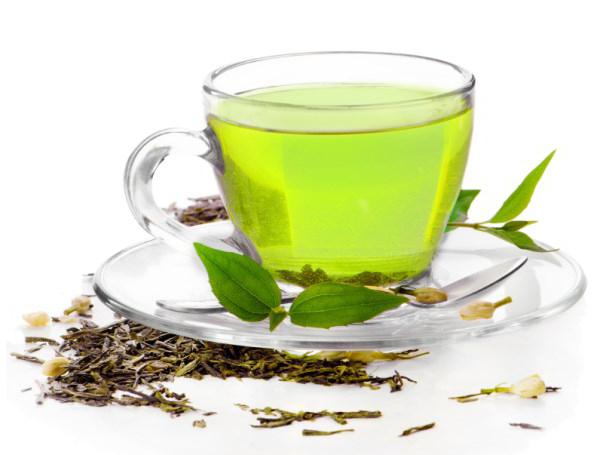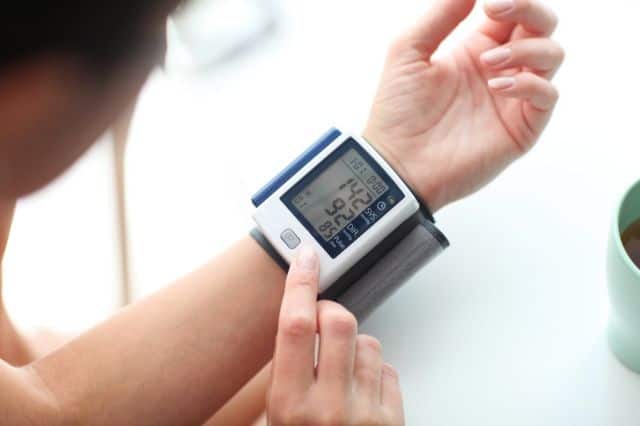Green tea lowers blood pressure: good and bad for the body
Author Ольга Кияница
2018-05-18
Green tea against blood pressure. The effect of green tea on pressure
Green tea affects blood pressure differently depending on the frequency of use and the strength of the drink.
There are several conflicting studies on the effect of green tea on high blood pressure. So, in China, data have been obtained that the daily intake of 120-600 ml of green tea is associated with a lower risk of developing hypertension. In people who already have signs of hypertension, taking green tea three times a day for a month reduces the increased pressure - systolic by 3.32 mm Hg , diastolic - by 3.4 mm Hg .
Several smaller studies have shown that black and green tea does not affect high blood pressure.

The drink is more useful at low pressure. Especially well its effect is shown in the elderly, prone to lowering blood pressure after eating.
What distinguishes black tea from green tea
Black and green tea is obtained from the upper buds and leaves of the same plant. The difference between them in the processing processes. To produce green tea, the leaves are collected, dried, and then heated by steaming (in Japanese tradition) or roasting (in China). This process stops oxidation, so the leaves retain color and aroma.
In the production of black tea, the leaves are compressed, twisted, fermentation and oxidation processes take place. As a result, they darken and acquire a more intense smell.
Differences between black and green tea:
- Caffeine amount
The caffeine content may vary depending on the grade and method of processing the raw materials. Usually, one cup of green tea contains 24 - 40 mg of caffeine, and in a cup of black - from 14 to 61 mg.
- Content of antioxidants
Both drinks contain antioxidants, which are necessary for the prevention of cancer and other diseases. Different methods of processing are the reason that in black and green tea there are different in composition, but equally useful substances with antioxidant properties.
What properties does green tea have?
Green tea is not fermented, high temperatures are used during its manufacture. This process helps to preserve in leaves and buds polyphenol molecules, which are responsible for many useful properties of this drink.
Polyphenols have the following properties:
- prevent inflammation, swelling and destruction of the cartilaginous tissue of the joints, protect against the progression of osteoarthritis;
- are active against the papilloma virus and can slow the formation of abnormal cells on the surface of the cervix, that is, its dysplasia; the mechanism of this action is not yet clear.
Green tea contains 2 to 4% caffeine, which positively affects thinking and mental activity, stimulates urine formation, and also increases the rate of nerve impulse transmission in Parkinson's disease. Caffeine stimulates the nervous system, heart and muscle tissue, activating the release of brain cells by activating substances called neurotransmitters.
Antioxidants, which are rich in green tea, protect the inner surface of the vessels (endothelium) and the heart muscle from the effects of hypoxia and the effects of toxic substances.
The benefits and harm of green tea for women and men
Green tea is useful for such conditions and diseases:
- intense mental activity;
- non-alcoholic liver diseases, for example, fatty degeneration;
- inflammatory bowel disease - ulcerative colitis and Crohn's disease;
- obesity, insulin resistance, diabetes mellitus;
- intestinal disorders, nausea, loose stools;
- headache;
- Parkinson's disease;
- chronic fatigue syndrome;
- tooth decay;
- urolithiasis disease;
- skin diseases.
Green tea is useful in the pathology of the heart, blood vessels, low blood pressure.
Many believe that drinking green tea is useful for the prevention of cancer of the breast, cervix, prostate, colon, lungs, liver, skin, and leukemia.

Lotions and compresses from green tea help with sunburn, swelling under the eyes, bleeding holes in the gums after tooth extraction. Baths from this infusion can help avoid fungal diseases, for example, mycosis foot.
Finally, rinses of the mouth and throat with green tea are used to prevent colds and gum disease.
With occasional use, green tea is safe. However, in high doses, it can have a harmful effect on the body, due to the caffeine contained in it:
- headache, irritability;
- insomnia;
- nausea and loose stools;
- interruptions in the work of the heart;
- muscular tremor;
- heartburn;
- dizziness and noise in the ears.
It is also likely that this drink reduces the absorption of iron from food, which is dangerous for anemia.
Low blood pressure: symptoms
Low pressure, which is especially useful for green tea, can be suspected when a person has such symptoms:
People with hypotension may experience unpleasant symptoms when their blood pressure drops below 90/60.Symptoms of hypotension may include:
- fatigue;
- dizziness;
- nausea;
- cold sticky sweat;
- Depressive disorders;
- fainting;
- blurred vision.
Such signs usually appear when the blood pressure drops below 90/50 mm Hg . However, there are people who do not feel unpleasant symptoms even at such a low pressure.
The main types of reduced pressure:
- Orthostatic hypotension: pressure decreases when going from a prone position or sitting to a standing position, occurs in people of any age; after a change in the position of the body, patients note the appearance of "stars" in the eyes, temporal blurred vision;
- postprandial hypotension: a drop in blood pressure occurs immediately after ingestion; often develops in elderly people and patients with Parkinson's disease;
- neurogenic: such hypotension develops as a result of prolonged standing, usually occurs in children, as well as emotional stress;
- heavy, associated with the shock state and insufficient blood supply to internal organs.
Symptoms of hypertension and the consequences of this phenomenon for human health
High blood pressure, or hypertension, is also dangerous for the human body. It may not be felt by the patient and can only be detected by measuring the blood pressure with a tonometer. In other cases, increased pressure is accompanied by such symptoms:
- severe headache, heaviness in the occipital region;
- fatigue, confusion;
- impaired vision, "flies" before the eyes;
- stitching, aching, pressing pain in the chest;
- labored breathing;
- irregular heartbeat;
- the appearance of blood in the urine;
- feeling of palpitation in the chest, vessels of the neck, ears, temples.
If the elevated blood pressure does not decrease in time, the patient may develop a hypertensive crisis, which can lead to a heart attack or stroke. Untreated hypertension increases the risk of coronary heart disease, cerebral circulatory disorders, renal failure and retinal function disorders (retinopathy).
Does the pressure of green tea, and whether it is worth using hypotonic
All studies and experience show that green tea does not reduce blood pressure. In some cases, it does not affect blood pressure, in others - increases them. It also increases heart rate and tones the body when used in reasonable amounts - up to 400 ml per day.
People with hypotension are advised to use green tea not only to increase blood pressure. This drink will help such patients feel more cheerful, more efficient, will have a positive effect with frequent dizziness and fainting.
How often can I drink green tea
The use of green tea has been studied in special studies. They helped to clarify the useful amount of the drink at different levels of blood pressure:
- at high pressure, patients used a drink prepared by boiling 3 grams of tea in 150 ml of water, three times a day 2 hours after eating, for a month;
- a benefit was also shown at high pressure of a food supplement containing 379 mg of green tea extract, which patients received in the morning during meals for 3 months;
- at low pressure, the most effective was the intake regimen: 400 ml of tea before lunch.
If tea is consumed daily, it is recommended that you limit yourself to two cups a day in the morning and afternoon hours.Contained in green tea caffeine has an exciting effect, so in the evening it is not recommended to drink it, as well as black tea.
Contraindications to drinking green tea
With caution, you should drink green tea to children under 18 years of age because of the possible toxic effects of caffeine. At pregnancy it is possible to use no more than 2 cups of drink per day. If this dose is exceeded, the risk of miscarriage increases. It is also possible the emergence of a deficiency of folic acid, which causes defects in the formation of the fetal nervous system. Nursing women are also not recommended to consume more than 2 cups of green tea per day, since caffeine penetrates into breast milk.
The use of green tea is undesirable in such diseases and conditions:
- iron deficiency and folate deficiency anemia;
- anxiety disorders, nervous excitement;
- increased bleeding;
- heart rhythm disturbances;
- diabetes with poor blood sugar control (possibly hypoglycemic condition);
- diarrhea;
- glaucoma: the increase in intraocular pressure after consumption of the drink occurs within half an hour and lasts at least 90 minutes;
- poorly controlled high blood pressure;
- irritable bowel syndrome;
- severe osteoporosis;
- liver disease with a pronounced impairment of its function, a significant increase in blood levels of bilirubin and hepatic enzymes.
Conclusion
Green tea contains antioxidants that protect the cells of the heart and vessels from damage, so it is useful in mild to moderate hypertension. At the same time, the cup of this drink can contain up to 40 mg of caffeine, which causes heart rhythm disturbances or an increase in blood pressure. Therefore, the best green tea is suitable for people without interruptions in the work of the heart, but having low blood pressure and the corresponding symptoms, for example, drowsiness.
Green tea is not a harmless product. There is a list of contraindications for its use, in particular, pregnancy and breastfeeding. Side effects of the drink are associated with the caffeine contained in it, which stimulates the work of the heart, muscle contractility, and the activity of the nervous system.
The effect of green tea on the human body is individual. Therefore, it is possible to decide whether it will help a patient with increased or decreased pressure, only by experience. With individual intolerance or deterioration of health from the use of this drink is better to refuse.
Video: Green tea lowers pressure - personal experience
Similar articles

In hypertension, an increase in blood pressure can occur suddenly - under the influence of physical activity, stress, weather changes or insufficiently selected therapy. In these cases, the risk of complications increases, including an attack of chest pain or stroke. Therefore, it is important to know how to quickly reduce blood pressure at home. It is recommended to check with the cardiologist beforehand which medications can be taken in this situation.

Often audible in everyday communication, the definition of “high cardiac pressure” actually means arterial hypertension. This medical term is increasingly used in relation not only to people of an age, but also to representatives of the younger generation. If you do not use methods of reducing heart pressure in time, then other life-threatening conditions may occur.

Among the various indicators of the physiological state of a person, a special place is occupied by arterial pressure. This indicator, as well as the pulse, has a direct connection with the cardiovascular system and in its magnitude it is possible to determine in general whether the person is in a normal state or is presumably suffering from any kind of disease.

Всю беременность пропила зеленый чай и слава Богу